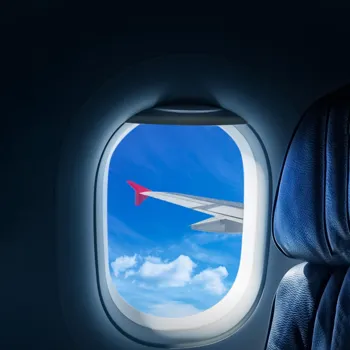Unlock the world's cultural treasures with 8 etiquette tips for respectful travel. Start your journey to understanding
Planning a trip abroad? Fantastic! Exploring new cultures is a deeply enriching experience.
However, it's crucial to remember that what's considered polite and acceptable in India might be completely different elsewhere.
To ensure you're a respectful and welcomed guest, here are eight essential tips for navigating cultural etiquette around the globe. These aren't hard and fast rules, but rather guidelines designed to help you avoid unintentional offense and foster positive interactions.
Remember, a little preparation goes a long way in creating memorable and meaningful travel experiences. Being mindful shows respect and opens doors to genuine cultural exchange.
Master Basic Greetings and Politeness
Before you pack your bags, dedicate some time to learning basic greetings in the local language. "Hello," "Please," "Thank you," and "Excuse me" are your magic words. Practicing these phrases shows you've made an effort to connect with the local culture.
A simple "Namaste" can go a long way with an Indian. Coupled with a smile, these words can bridge cultural gaps and create a positive first impression. Pay attention to how locals greet each other – is it a handshake, a bow, or a hug?
Adapting your greeting style demonstrates respect for their customs. Also, remember the power of non-verbal communication.
Maintaining eye contact (where appropriate – some cultures consider it disrespectful with elders or superiors), nodding to acknowledge someone's presence, and smiling are universal signs of politeness. Small gestures can speak volumes, especially when there's a language barrier.
Being polite goes beyond just words; it's about showing respect and consideration for the people you encounter on your journey.
Dress Appropriately
Dress codes vary significantly across cultures. What's considered fashionable in one place might be offensive in another. Research the local customs regarding clothing before you travel. Are shoulders and knees expected to be covered?
Should you remove your shoes before entering a temple or someone's home? Observe how locals dress and try to blend in as much as possible. Modesty is often appreciated, especially in religious sites. Pack versatile clothing that can be easily layered to adapt to different situations.
Light, breathable fabrics are always a good choice, especially in warmer climates. Avoid wearing clothing with potentially offensive slogans or images. Remember, your clothing is a form of communication.
Dressing respectfully shows that you value the local culture and are making an effort to understand. It's always better to err on the side of caution and dress more conservatively, rather than risk causing offense. Dressing inappropriately can sometimes carry other implications.
Understand Dining Customs
Food is an integral part of any culture, and dining etiquette can vary greatly. In some countries, it's considered rude to eat with your left hand, while in others, burping after a meal is a sign of appreciation. Learn about the specific dining customs of the region you're visiting.
Do they use utensils, chopsticks, or their hands? Is it customary to wait for everyone to be served before starting to eat? Should you leave a tip? Adapt your dining habits to show respect for the local traditions.
If you're unsure about something, observe what others are doing and follow their lead. Remember, meals are often social occasions, so be mindful of your table manners. Avoid talking with your mouth full, chewing loudly, or reaching across the table.
If you're invited to someone's home for a meal, bring a small gift as a token of your appreciation. Dining is more than just eating; it's an opportunity to connect with locals and learn about their culture. Be open to trying new foods and flavors, even if they seem unfamiliar.
Be Mindful of Personal Space
Personal space is a cultural construct that varies dramatically around the world. In some cultures, people stand close together when talking, while in others, maintaining a greater distance is preferred. Observe how locals interact and adjust your own behavior accordingly.

Avoid invading someone's personal space without cause. Be particularly mindful when in crowded places, such as public transportation or markets. If you accidentally bump into someone, offer a sincere apology. Respecting personal space is a sign of consideration for others' comfort and boundaries.
It's important to be aware that cultural norms regarding physical touch also vary. A handshake might be appropriate in some situations, while a hug or kiss might be considered too familiar. Pay attention to body language cues and adjust your behavior accordingly.
Remember, respecting personal space is about showing awareness and sensitivity to the cultural norms of the place you're visiting.
Show Respect for Religious Sites and Customs
When visiting religious sites, dress modestly and follow any specific rules or guidelines. Remove your shoes if required, and avoid making loud noises or taking pictures without permission. Be respectful of religious rituals and ceremonies, even if you don't understand them.

Avoid entering religious sites during prayer times, unless you are there to participate. If you are unsure about what is appropriate, ask a local for guidance. Remember, religious sites are sacred places and should be treated with reverence.
In some cultures, it is considered disrespectful to point your feet at religious figures or objects. Be mindful of your posture and gestures when in religious settings. Avoid engaging in conversations that might be considered disrespectful or offensive to religious beliefs.
Showing respect for religious sites and customs demonstrates your appreciation for the cultural values of the place you're visiting.
Learn About Local Laws and Customs
Before you travel, research the local laws and customs of the country you're visiting. What is considered legal in one place might be illegal in another. Be aware of the local laws regarding alcohol consumption, photography, and public behavior.
Respect local traditions and customs, even if they seem strange or unfamiliar to you. Avoid engaging in activities that might be considered offensive or illegal. If you're unsure about something, ask a local for guidance. Remember, ignorance of the law is not an excuse.
Being informed about local laws and customs can help you avoid trouble and ensure a safe and enjoyable trip. Research common scams and tourist traps to avoid being taken advantage of. Carry a copy of your passport and visa with you at all times, and be aware of the local emergency contact numbers.
Travelling with awareness is necessary.
Be a Responsible Traveler
Being a responsible traveller, is about leaving a positive impact on the environment and the local community. Respect nature by not littering, polluting, or damaging natural resources. Support local businesses and artisans by buying their products and services.
Be mindful of your water and energy consumption. Avoid engaging in activities that might harm the environment or exploit local communities. Consider volunteering or donating to local charities. Remember, your actions can have a significant impact on the places you visit.
By being a responsible traveler, you can contribute to the preservation of the environment and the well-being of local communities. Choose eco-friendly accommodations and transportation options. Avoid using single-use plastics.
Learn about the local culture and history, and share your knowledge with others.
Ask Questions and Be Open-Minded
Don't be afraid to ask questions and learn about the local culture. Locals are usually happy to share their traditions and customs with visitors. Be open-minded and willing to try new things, even if they seem unfamiliar. Avoid making judgments or comparisons based on your own cultural background.
Remember, every culture has its own unique values and beliefs. Be respectful of different perspectives and ways of life. Embrace the opportunity to learn and grow from your experiences. By being curious and open-minded, you can gain a deeper understanding of the world and yourself.
Engage in conversations with locals and ask them about their lives and experiences. Read books and articles about the local culture and history. Attend cultural events and festivals to experience the local traditions firsthand.
Remember, travel is an opportunity to broaden your horizons and challenge your assumptions.
AI Generated Content. Glance/InMobi shall have no liability for the content













